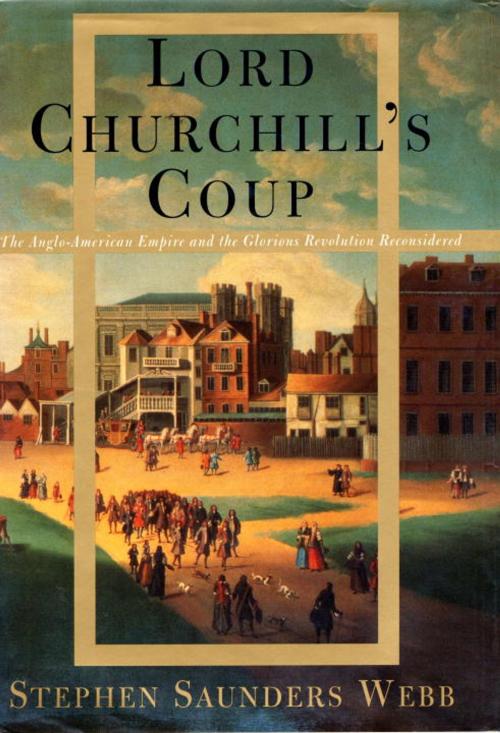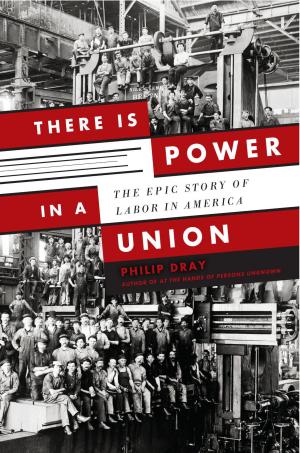Lord Churchill's Coup
The Anglo-American Empire and the Glorious Revolution Reconsidered
Nonfiction, History, Modern, 18th Century, Americas, United States, Colonial Period (1600-1775), British| Author: | Stephen S. Webb | ISBN: | 9780307824493 |
| Publisher: | Knopf Doubleday Publishing Group | Publication: | September 12, 2012 |
| Imprint: | Knopf | Language: | English |
| Author: | Stephen S. Webb |
| ISBN: | 9780307824493 |
| Publisher: | Knopf Doubleday Publishing Group |
| Publication: | September 12, 2012 |
| Imprint: | Knopf |
| Language: | English |
In LORD CHURCHILL’S COUP, Stephen Saunders Webb further advances his revisionist interpretation of the British Empire in the seventeenth century. Having earlier demonstrates that the Anglo=American empire was classic in its form, administered by an army, committed to territorial expansion, and motivated by crusading religion, Webb now argues that both England and its American social experiments were the underdeveloped elements of an empire emerging on both sides of the Atlantic and that the pivotal moment of that empire, the so-called “Glorious Revolution,” was in fact a military coup driven by religious fears.
In a vigorous narrative, Webb populates this formative period of the Anglo-American past with colorful and commanding characters. At the center is John Churchill. We see him rise from page boy to earl of Marlborough, winning battlefield glory, influence, and promotion; and his corresponding rise from ensign of the English army taking control of the destiny of the later Stuart monarchs of Britain and America.
Webb shows us Churchill increasingly alarmed by the Catholicizing course of his patron, James II, and becoming instrumental in the organization of a successful coup to protect Anglicanism and the constitution. We see the resulting alliance with William of Orange, the Protestant champion of Europe, quickly turn sour as William makes himself king; and we see Churchill, now transformed into imperial politician, once again in power—able to secure the succession of Queen Anne and negotiate the terms of resumption of war against France.
Throughout, Webb makes it clear that at the heart of Churchill’s ascent and actions is his vision of America as a decisive factor in the world war between England and France for impersonal supremacy. As the book ends, Churchill’s American agenda thus becomes central to the war aims of the Grand Alliance.
In LORD CHURCHILL’S COUP, Stephen Saunders Webb further advances his revisionist interpretation of the British Empire in the seventeenth century. Having earlier demonstrates that the Anglo=American empire was classic in its form, administered by an army, committed to territorial expansion, and motivated by crusading religion, Webb now argues that both England and its American social experiments were the underdeveloped elements of an empire emerging on both sides of the Atlantic and that the pivotal moment of that empire, the so-called “Glorious Revolution,” was in fact a military coup driven by religious fears.
In a vigorous narrative, Webb populates this formative period of the Anglo-American past with colorful and commanding characters. At the center is John Churchill. We see him rise from page boy to earl of Marlborough, winning battlefield glory, influence, and promotion; and his corresponding rise from ensign of the English army taking control of the destiny of the later Stuart monarchs of Britain and America.
Webb shows us Churchill increasingly alarmed by the Catholicizing course of his patron, James II, and becoming instrumental in the organization of a successful coup to protect Anglicanism and the constitution. We see the resulting alliance with William of Orange, the Protestant champion of Europe, quickly turn sour as William makes himself king; and we see Churchill, now transformed into imperial politician, once again in power—able to secure the succession of Queen Anne and negotiate the terms of resumption of war against France.
Throughout, Webb makes it clear that at the heart of Churchill’s ascent and actions is his vision of America as a decisive factor in the world war between England and France for impersonal supremacy. As the book ends, Churchill’s American agenda thus becomes central to the war aims of the Grand Alliance.















